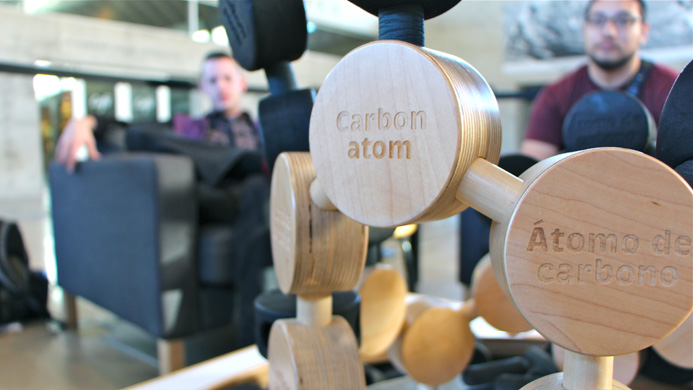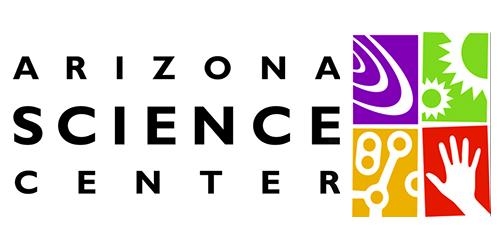Informal Science Education

One of CNS-ASU's major achievements has been to to assist science museum and center partners locate local experts in the social implications of nanotechnology, which has helped increase the number of museums that are able to tackle these topics successfully.
One of the central areas of this collaboration has been with another NSF-funded project, the Nanoscale Informal Science Education Network (NISE Net). One of NISE Net's original learning goals included a recognition of the "important societal and ethical implications” of nanotechnology. Because including social implications of science represents somewhat of a departure from traditional science museum content, consultations between CNS-ASU and NISE Net proved to be particularly fruitful. CNS-ASU continues to have significant and extensive collaborations with NISE Net, such that it will now be named a core partner.
Some elements of this collaboration include:
Mini Nano Exhibit
CNS-ASU faculty served as consultants on an ambitious NISE Net project to produce plans and materials for an exhibit that could be installed in museums and centers across the country, being called the Mini Nano Exhibit. CNS-ASU scholars have provided valuable feedback and helped to evaluate the 200 square foot exhibit that NISE Net has developed and plans to produce 50 copies of to be distributed to museums across the country. Because of these collaborations, NISE Net designated one of the first five exhibits produced to be sent to the Arizona Science Center and CNS-ASU members continue to develop activities around it.
Nanoequity Card Game
NISE Net has been instrumental in developing the "Nano Around the World" card game, and a related spin-off for younger age groups, called “Whose Nano is it?” Some of the NISE Net leadership were present the first time the game was introduced at the 2011 S.NET annual meeting and asked the game's creators if they would be willing to revise the game in collaboration with NISE Net to expand the target audience. Since Nov 2011, we have collaborated with NISE Net to refine the text, develop new graphics, and review the content for consistency and accuracy.
NISE Net is currently committed to post the game on its website so that it can be downloaded and used by anyone and will include a hard copy of the game in its 2013 Nanodays kit that will be sent to over 200 sites across the country.
CNS-ASU has also partnered extensively with the Arizona Science Center. CNS-ASU sends a group of graduate students to present on the museum floor at least once a month throughout the academic year, including the annual Nanodays event, coordinated with the National Nanotechnology Infrastructure Network (NNIN). we collaborated extensively on last year's “Making Stuff” program, and this year CNS-ASU faculty will serve as the main outside consultants for a grant ASC recently received to develop nano podcasts.
The Science Center has also opens its doors as a place for scholars to develop and do test runs of new projects. For instance, CNS-ASU piloted the Nano Equity card game at the December 2011 “Adult Night Out” event. That test run provided valuable data and led to a number of important changes in the game’s protocol. Additionally, in March 2012, the Science Center hosted the first pilot run of the joint CNS-ASU/NISE Net “Nano and Society” training workshop program. Eight staff members took a full day off from their regular duties to participate in the pilot training and provided invaluable feedback that helped to validate the proof of concept.
Finally, CNS’s oldest flagship outreach activity–-the Science Café--has been held monthly at the Arizona Science Center since 2007.




